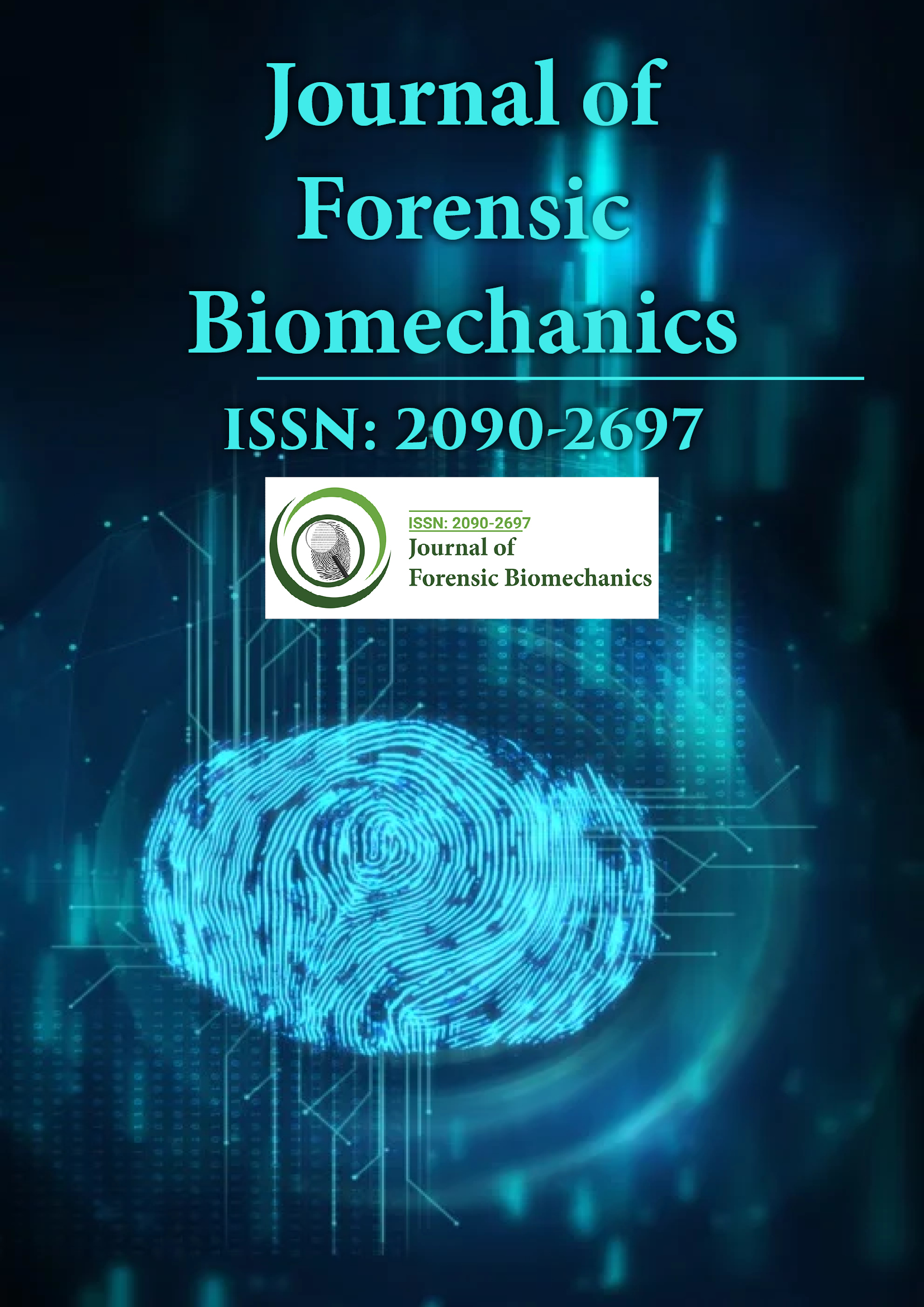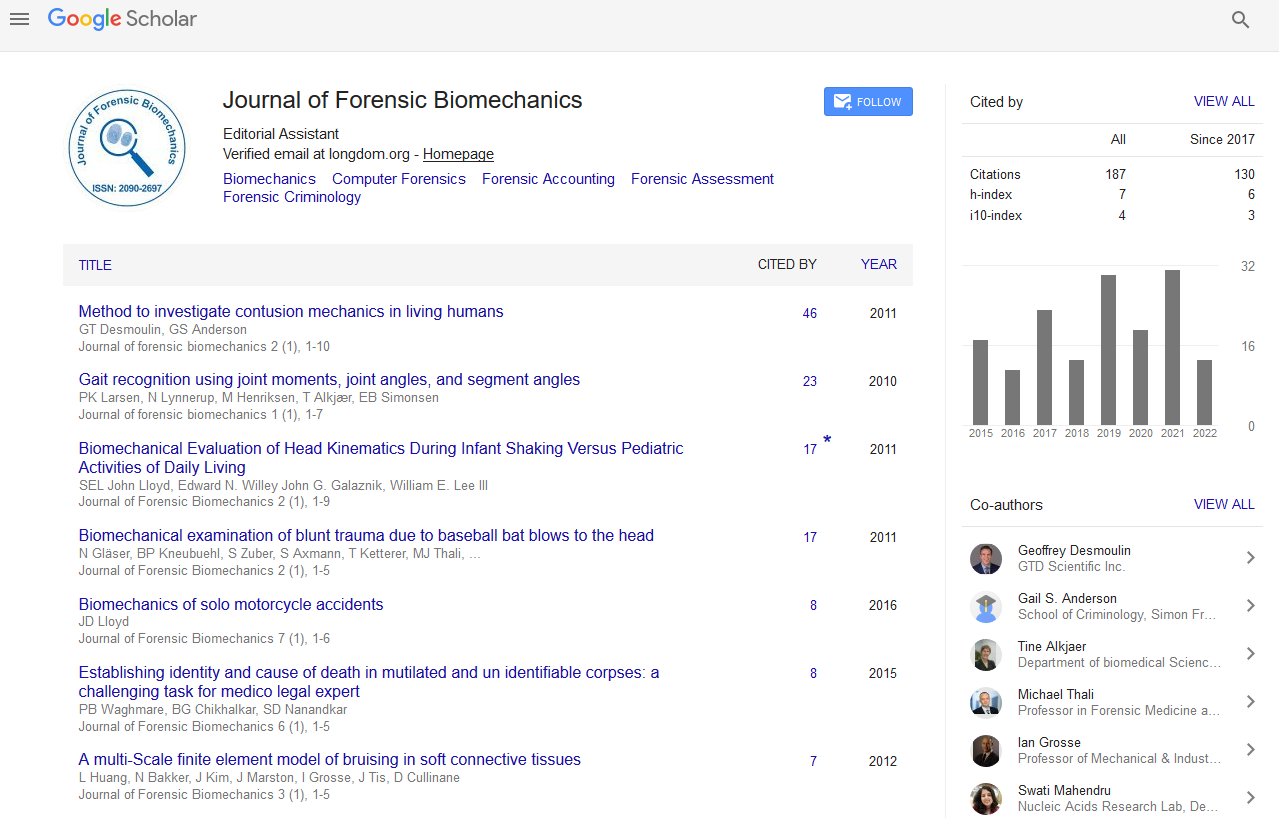Indexed In
- Genamics JournalSeek
- SafetyLit
- Ulrich's Periodicals Directory
- RefSeek
- Hamdard University
- EBSCO A-Z
- Geneva Foundation for Medical Education and Research
- Euro Pub
- Google Scholar
Useful Links
Share This Page
Journal Flyer

Open Access Journals
- Agri and Aquaculture
- Biochemistry
- Bioinformatics & Systems Biology
- Business & Management
- Chemistry
- Clinical Sciences
- Engineering
- Food & Nutrition
- General Science
- Genetics & Molecular Biology
- Immunology & Microbiology
- Medical Sciences
- Neuroscience & Psychology
- Nursing & Health Care
- Pharmaceutical Sciences
Perspective - (2023) Volume 14, Issue 3
Zero Net in Digital Forensic: Its Advantages and Challenges
Ravleen Nagi*Received: 02-May-2023, Manuscript No. JFB-23-21635; Editor assigned: 05-May-2023, Pre QC No. JFB-23-21635 (PQ); Reviewed: 19-May-2023, QC No. JFB-23-21635; Revised: 26-May-2023, Manuscript No. JFB-23-21635 (R); Published: 02-May-2023, DOI: 10.35248/2090-2697.23.14.439
Description
The digital landscape has undergone significant transformations in recent years, with the proliferation of online platforms and the exponential growth of digital data. As a result, digital forensics has become an essential component in investigating cybercrime, analyzing digital evidence, and ensuring the integrity of data. In this context, the decentralized web service ZeroNet has emerged as a valuable tool for digital forensics professionals. This article explores the various uses of Zero Net in the realm of digital forensics, highlighting its advantages, challenges, and potential impact on the field.
Understanding zero net
Zero Net is a decentralized web service that utilizes block chain technology to create a peer-to-peer network of websites. Unlike traditional web services, Zero Net doesn't rely on a central server; instead, it operates on a distributed network of nodes. Websites hosted on Zero Net are stored across multiple computers, making them resilient to censorship, downtime, and single-point failures.
Preserving digital evidence
One of the key benefits of ZeroNet for digital forensics lies in its ability to preserve digital evidence. Traditional web services can be subject to alteration or deletion, compromising the integrity of the evidence. In contrast, Zero Net’s distributed nature ensures that data remains intact, providing investigators with an immutable source of evidence. This feature is particularly crucial when dealing with cybercrime cases, where evidence tampering is a common challenge.
Investigating dark net activities
The decentralized nature of ZeroNet also makes it a valuable resource for investigating activities on the darknet. With its distributed architecture, ZeroNet can host websites that are not easily traceable, making it a potential hub for illegal activities. Digital forensics professionals can leverage ZeroNet to explore and and analyze these hidden platforms, gaining insights into criminal networks, illicit transactions, and other nefarious activities.
Tracing digital footprints
ZeroNet can play a significant role in tracking and analyzing digital footprints left behind by individuals. By examining the content hosted on ZeroNet, investigators can uncover valuable information related to the identity, actions, and communication patterns of suspects. This can aid in building a comprehensive profile, establishing links, and supporting investigations related to cybercrimes, fraud, or other digital offenses.
Overcoming jurisdictional challenges
The decentralized nature of ZeroNet helps circumvent jurisdictional challenges often faced in digital forensics investigations.
Traditional web services are bound by geographical boundaries and legal frameworks, requiring time-consuming legal processes to access data. ZeroNet, on the other hand, enables investigators to bypass these hurdles by hosting websites on distributed nodes worldwide. This feature enhances collaboration between international agencies and expedites the exchange of crucial digital evidence.
Analyzing malware and exploits
ZeroNet can serve as a controlled environment for analyzing malware and exploits safely. By hosting potentially malicious websites on ZeroNet, investigators can monitor and analyze their behavior while limiting the risk of infecting their own systems. This controlled approach allows for in-depth analysis of malware and exploits, aiding in the development of countermeasures and enhancing overall cyber security.
Ensuring data integrity
Another advantage of ZeroNet is its ability to ensure data integrity during the digital forensics process. By utilizing block chain technology, ZeroNet creates an auditable trail of modifications and interactions, guaranteeing the authenticity of digital evidence. This tamper-resistant characteristic is invaluable in court proceedings, where the integrity of evidence is paramount.
Conclusion
The decentralized web service ZeroNet presents a promising frontier in the field of digital forensics. Its distributed architecture, resilience to censorship, and immutability make it a powerful tool for preserving digital evidence, investigating darknet activities, tracing digital footprints, overcoming jurisdictional challenges, analyzing malware, and ensuring data integrity. However, as with any technology, there are challenges to be addressed, such as the potential misuse of ZeroNet for illegal activities and the need for specialized tools to navigate and extract relevant information from this decentralized ecosystem.
Nonetheless, the potential impact of ZeroNet on digital forensics is undeniable, and with further development and research, it has the potential to revolutionize the way investigations are conducted in the digital realm.
Citation: Nagi R (2023) Zero Net in Digital Forensic: Its Advantages and Challenges. J Forensic Biomech. 14:439.
Copyright: © 2023 Nagi R. This is an open-access article distributed under the terms of the Creative Commons Attribution License, which permits unrestricted use, distribution, and reproduction in any medium, provided the original author and source are credited.

